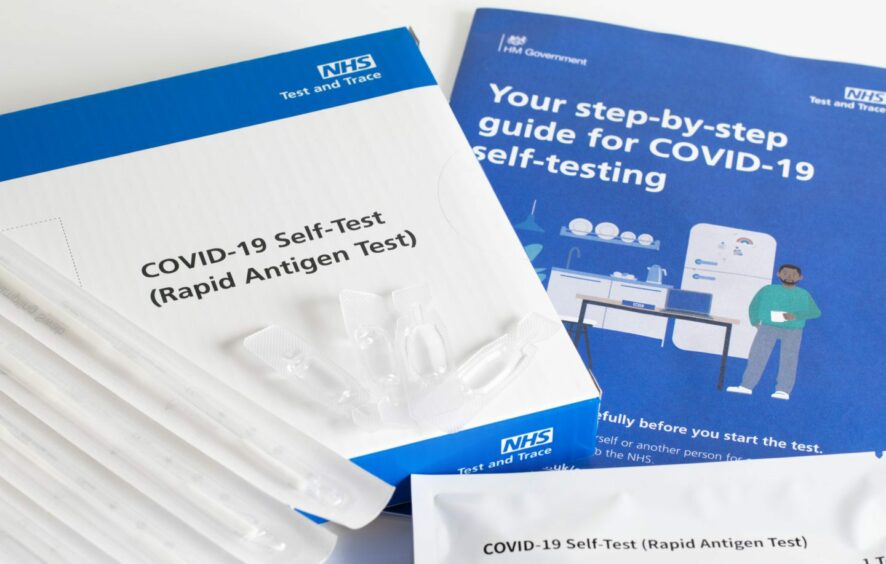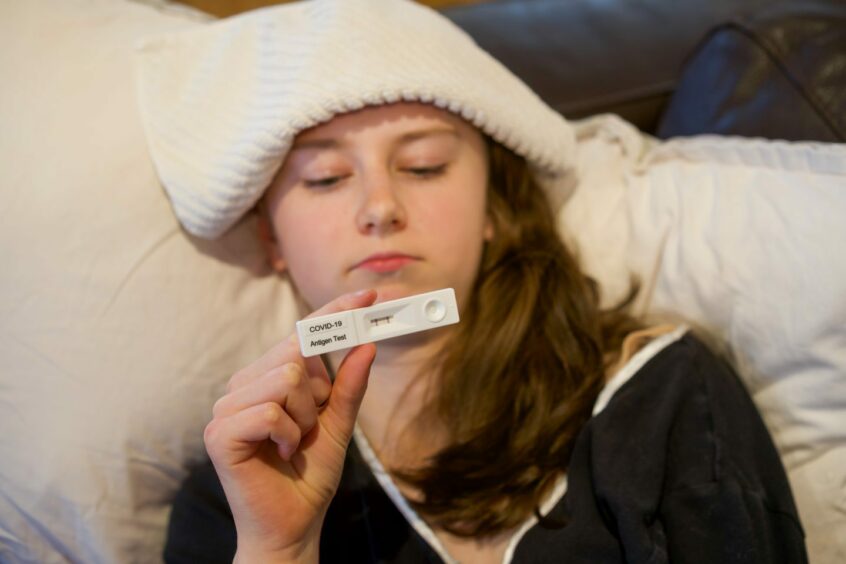Covid cases are rising again in Scotland with the new subvariants BA.4 and BA.5 being the most contagious yet.
And with all the restrictions lifted you may be wondering what to do if you do test positive.
The most recent data estimates around 288, 200 people tested positive in Scotland at the end of June – around one in 18 people.
The results are obtained through people taking part in the Covid-19 Infection Survey set up by the Office for National Statistics.
Do I need to let anyone know of my positive result?
Most people no longer need to take a coronavirus test. But you can still report positive results here if you have any government-issued tests left at home.
Results from tests bought in shops cannot be reported.
You can still get free test kits if:
- You work in NHS health or social care settings
- You have a health condition which means you’re eligible for new coronavirus treatments
- You’re going into hospital for surgery or a procedure
- There’s plans to visit a hospital or care home
- You are an unpaid carer
- You’re applying for the self-isolation support grant
What else can I do?
Restrictions may have eased in Scotland but there are still things you should do to help reduce the spread of coronavirus.
It is important to stay at home for five days (three if you are under the age of 18) or until you feel well again and your temperature disappears.
Covering your mouth when you cough or sneeze is also important.
Wearing a face mask in indoor places and on public transport can also help protect yourself and others.
Should I stay at home if someone in my household tests positive?
There is no longer any legal requirement for you to stay at home if someone else in your household tests positive.
But if you’ve had contact with them it can take up to 10 days for the infection to develop so you could pass the virus on to others.
Jillian Evans, head of health intelligence at NHS Grampian, says: “Covid sense kicks in here because your exposure is so increased that really you ought to take some personal responsibility.
“Work from home if you can, don’t go out and about in crowded spaces and keep away from vulnerable people.
“But the minute you’ve got symptoms it’s important to do the right thing and stay at home.”
Is there anything else that will help?
You can take part in the national Zoe Health Study. The study tracks the changing symptoms of coronavirus helping health researchers stay on top of the virus.
Jillian says we can all have a part to play to help.
“We are seriously living with this now,” she says. “It’s about being sensible and about what we can do to try to reduce infection which is the only thing we can do right now.
“If we want to keep going and live with it as safely as possible we can all do our bit to make that happen.”
More health news…
How can we replace the comfort of lockdown home baking?
What is the ‘flesh eating disease’ with relatively high case numbers in Aberdeen?



Conversation